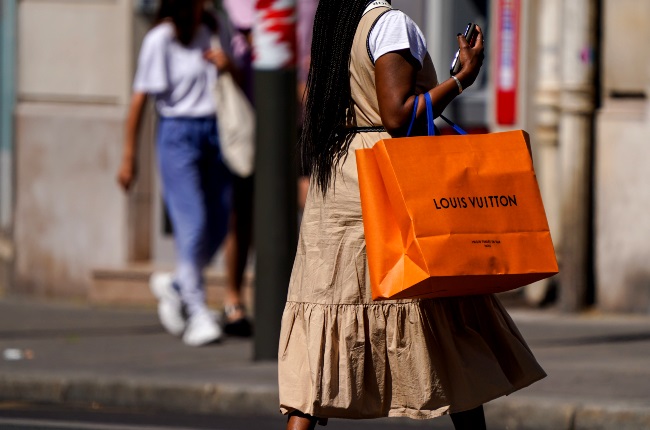
- Money might not buy you love, but according to some studies in psychology and consumer behaviour, how you spend it could reveal a thing or two about your romantic intentions.
- These studies demonstrate that just thinking about meeting a new partner can actually impact our shopping decisions in surprising ways – affecting men and women differently.
- Eric Levy unpacks cost signalling theory and its impact on dating.
These studies are largely based on “costly signalling theory” – a model borrowed from evolutionary biology which suggests that conspicuous displays that are difficult to acquire, such as the elaborate and colourful nests of bowerbirds, serve a vital function in signalling one’s desirable traits.
In humans, the signals displayed by men and women tend to differ, due to the different traits that are thought to be attractive to the opposite sex based on evolutionary pressures.
According to costly signalling theory, men should seek to display their wealth and resources to women, while women should advertise their helpfulness and kindness to men.
READ MORE | 'I’m a lawyer and money isn't everything to me, so I prefer dating broke men, here’s why'
Emotional shopping
But how does this relate to spending?
One study investigated this question by showing half of the participants pictures of attractive people of the opposite sex or having them reading a scenario about meeting an attractive person for a romantic walk on the beach.
The other half read a neutral scenario unrelated to attraction. The results showed that men who had romance on their minds were more likely to report that they would spend money on conspicuous luxury goods, for example a new car, a new watch, a new cell phone or a nice holiday.
Women, on the other hand, did not increase their desire for luxury goods when thinking about meeting a new partner. However, such thoughts did increase their desire to be altruistic and helpful (this was determined by a question to both women and men about how much volunteer work they were willing to do if they had free time).
Another set of studies found that men were particularly interested in making luxury purchases after reading a scenario about a fleeting romance, rather than a potential long-term relationship. This was especially the case in men who were already more interested in short-term relationships than in long-term partnerships.
Interestingly, women reported being more attracted to such conspicuously consuming men if they were looking for a short-term relationship, but not for the long term.
READ MORE | Zendaya reveals what she likes in a man – Kindness
But what about women?
One study found that women who were thinking about female romantic rivals trying to poach their mate were more likely to purchase luxury goods. This effect was not found when they did not imagine attractive rivals being around. However, the study did not examine to what extent men’s consumption can be linked to being scared about losing a partner.
Another study looked at how women’s spending habits would change during an economic recession. From a list of items, women chose more objects associated with grooming when thinking about a recession, as compared to no recession. However, non-grooming items such as headphones were more likely to be chosen when not thinking about a recession. Women also reported being more eager to attract a mate with resources (such as money) when thinking about a recession.
But how do we spend when we’re less optimistic about our romantic chances? A study by me and my colleagues has shown that men are willing to pay more for a conspicuous luxury car after thinking about a romantic rejection. This could be due to their desire to attract a new partner, after having had their self-esteem harmed.
However, women show the opposite pattern: they are willing to pay more for a luxury car after thinking about a romantic success, likely because they view the car as a sign of relationship commitment with their partner.
This article is republished from The Conversation under a Creative Commons license. Read the original article.
Follow us on social media: Facebook, Twitter, Instagram
Sign up to W24's newsletters so you don't miss out on any of our stories and giveaways.




 Publications
Publications
 Partners
Partners












